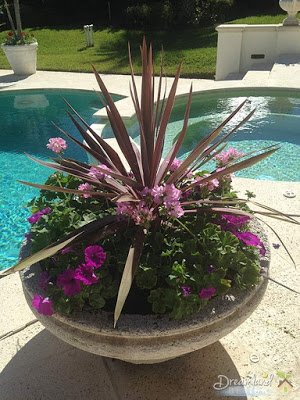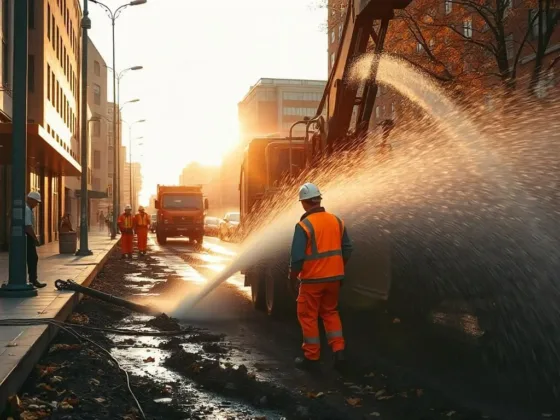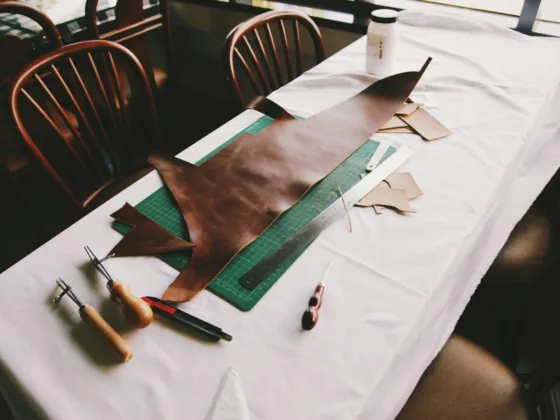Table of Contents Show
For those who have gone through the process of selecting kitchen worktop materials, they all can attest that it could become an overwhelming undertaking, yet exciting at the same time.
It’s no surprise since there are hundreds of available options in the market today, ranging from natural stones to glass to engineered ones like quartz worktops.
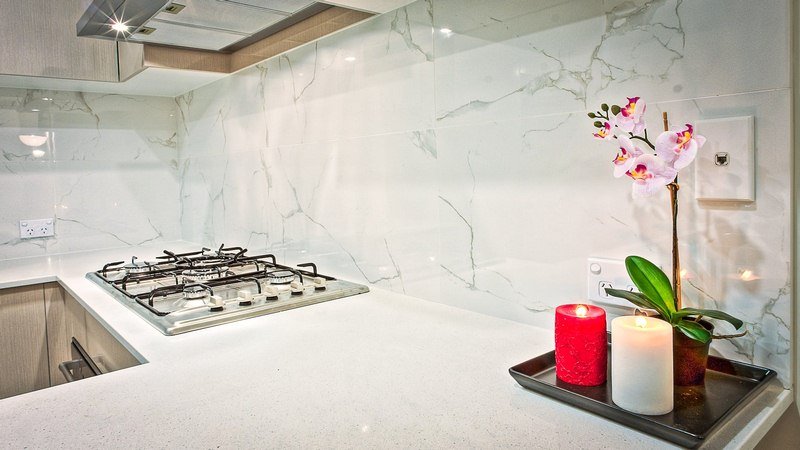
Additionally, you have to consider other factors like each surface’s pros and cons. That’s why it’s worth the time to get this hardworking kitchen surface right so that you’ll not end up dazed and confused and possibly regret and waste precious resources.
Pros and Cons of Top Kitchen Worktop Materials
Just so you know, this isn’t an easy choice to make. Lucky for you, this article will cover the top kitchen materials and will provide you with the necessary information so you can make an informed decision for your upcoming major kitchen remodel.
Granite Worktops
One of the most popular and sought-after kitchen worktop materials is granite, mostly because of its durability and unique and natural beauty.
Every granite slab is 100% unique in its pattern, hue, and shading, and this natural stone is often associated with luxurious, stylish kitchen schemes.
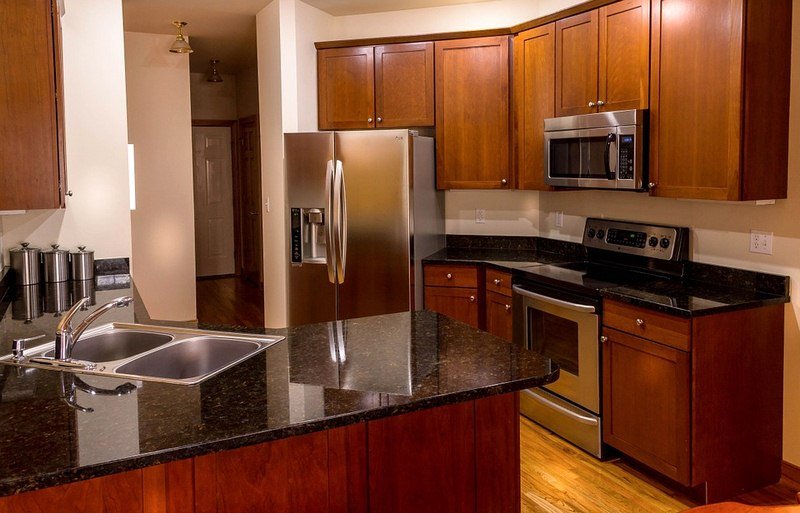
Usually, each granite slab measures about 9 to 10 ft long and 5 to 6 ft wide, although there are other places offering granite slabs measuring 12 ft long for extra-large open-space kitchens.
So if your worktop is larger than this measurement, your granite surface will have to be installed in pieces, resulting in a few visible seams.
One thing you should keep in mind about granite is that it needs to be properly sealed upon installation and regularly so that this precious natural stone will last for generations to come.
Pros
- Durable and hard-wearing
- Heat, stain, scratch, and water-resistant (when properly sealed)
- Antibacterial
- Easy to clean
- Unique patterns and colors
Cons
- High maintenance
- Expensive
- Can chip or break when exposed to excessive stress during installation or transportation
Tips: To save money, opt for thinner slabs of granite. Also, use a fraction of the cost by opting for granite tiles.
Quartz Worktops
Quartz is an engineered surface designed to be an alternative to natural stone surfaces, such as marble and granite. Considering the cost of top-of-the-line granite surfaces, quartz can definitely give natural stones the run for their money.
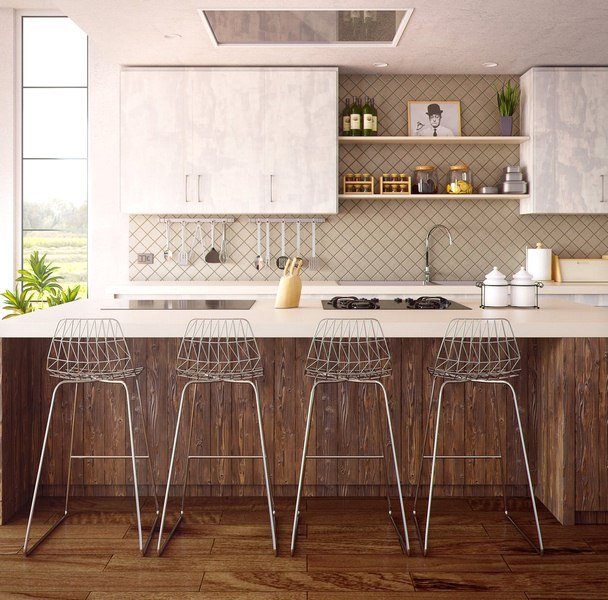
This engineered stone garnered extreme popularity because of its durability and features customizable options for buyers. In fact, it can sport the look of a natural stone, of course without the required maintenance.
However, just like granite, quartz will also have seams, although they’re less noticeable. The consistent pattern and look allow the seams to actually blend more easily, making them less visible.
One major advantage quartz has over natural stone surfaces is that it doesn’t require to be regularly sealed—it is a non-porous material.
But it isn’t completely resistant to heat. Sudden and extreme changes in temperature and high impacts could leave hairline fractures, eventually leading to chipping and cracking.
Pros
- Antibacterial
- Easy to clean
- No re-sealing
- Hard-wearing
- More flexible than granite, making it more tolerant to stress and stronger
- A wide range of colors and customization options
- Available in both matte and glossy finishes
Cons
- Prices could be at par with high-end granite surfaces
- Very heavy
- Requires professional installation
Solid Surface Worktops
Popularly known by its brand name, Corian, Solid Surfaces is a machine-made product made by DuPont. It is a seamless material that’s hygienic, non-porous, and durable.
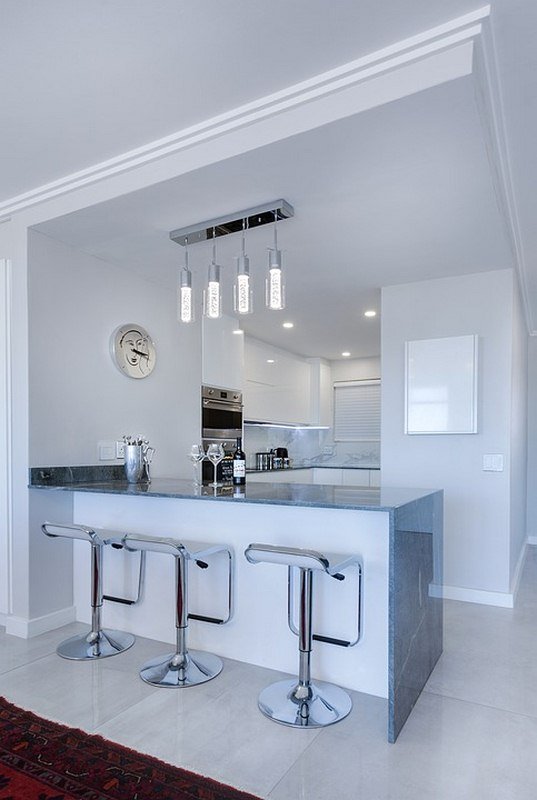
More modern solid surface designs feature natural stone-looking surfaces, from warm and traditional to brighter colors to a minimalist kitchen style. They also offer custom colors.
Solid surfaces feature a consistent look and lend themselves to integrating features, like drainboards, sinks, and backsplashes.
Pros
- Nonporous
- Can be molded into any shape
- Easily repaired
- Seamless
- Customizable
- Features several colors, finishes, and patterns
- Easily cleaned
- Stain resistant
- Quick installation
Cons
- Not heat resistant
- Doesn’t feel natural
- Expensive
- Can be dented or scratched
Something you need to consider: Solid surfaces are great for contemporary kitchens since they are indeed scratch and heat-resistant but only to some degree.
However, if you’re looking for the feel of natural stone surfaces, then the solid surface isn’t for you since it still can’t compete with the likes of quartz, marble, or granite.
The exterior of solid surfaces is waterproof. However, once the water penetrates the substrate material, it can definitely cause irreparable damage. You might end up replacing your whole worktop.
Read Also:
Laminate Worktops
Often scoffed at by homeowners who are avid lovers of the natural stone surface, the laminate is still one of the most widely used worktop surfaces. Why?
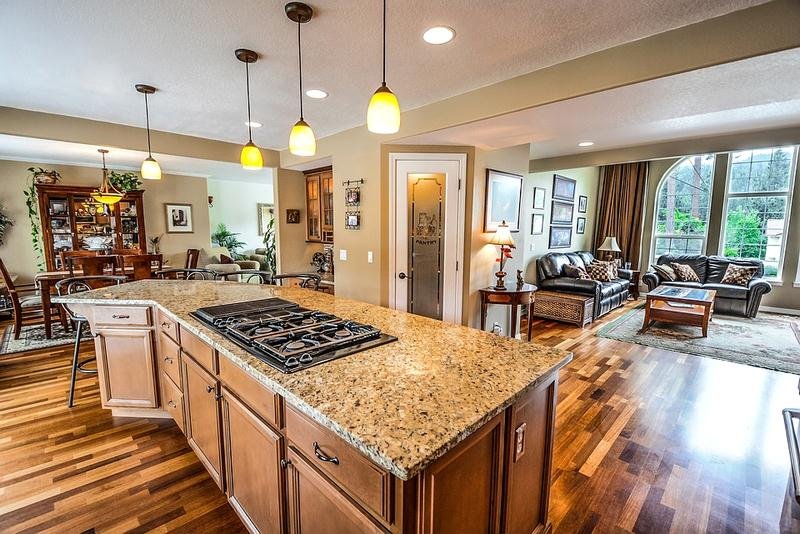
Laminate has come a long way since its introduction into the market. Yet it is still budget-friendly and making a comeback with its new designs, with some even mimicking the look of natural stone surfaces.
For a fraction of the installation and maintenance cost, you can achieve the look of wood, granite or marble. Or if you’re planning a more contemporary kitchen look, go for bolder, brighter colors and patterns.
Pros
- Affordable/budget-friendly
- Varying styles and can be designed to look like more expensive materials
- Low maintenance
- Antibacterial
- Durable
- Resistant to stain and scratch and heat to some degree
- Suits any style of kitchen, from contemporary to traditional
Cons
- Can crack, scorch, and scratch over the years
- Difficult to repair
- Can peel
Something you need to consider: Although laminate could seem to look good on paper, remember that you get what you pay for.
Cheaper options or lower-end products will easily damage and may possibly lack the benefits listed above. So make sure you carefully shop since there’s a massive variation in terms of quality.
Recycled Glass Worktops
For those looking for more environmentally friendly options, recycled glass is your best bet. These surfaces can be translucent, tempered, or embedded into concrete. Its transparency adds to depth to your kitchen surface. It’s like adding another piece of art with its uniquely dramatic surface.
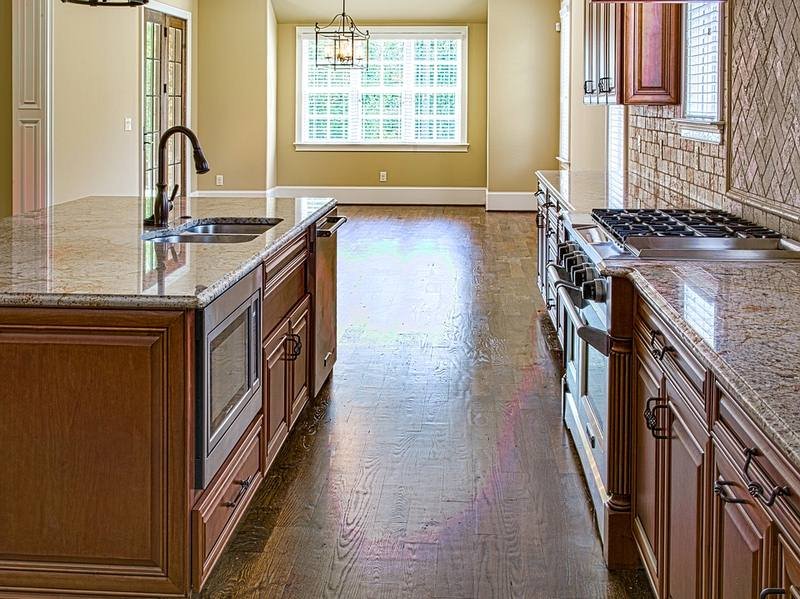
And much like other surfaces, glass also comes in sheets. This means there could be seams. If you opt to embed glass into concrete, then you need to reseal it every 6 months.
Pros
- Visually appealing
- Versatile and Customisable
- Environmentally friendly
- Non-porous (unless the concrete is used)
- Easy to clean
- Extremely durable
- Heat tolerant
Cons
- Shows water spots
- Can be scratched, broken, or chipped
- Shows fingerprints
- Vulnerable to acidic substances
- Requires frequent cleaning
Stainless Steel Worktops
Often used in the commercial setting, stainless steel worktops are ideal for homeowners who are looking for an extremely durable surface. Stainless steel is heat resistant, virtually indestructible and also easy to clean, making it highly desirable for serious cooks.

Its non-porous surface inhibits the growth of bacteria, mold, or mildew. However, it isn’t impervious to kitchen damage. Not only can it be scratched or dented, but also fingerprint marks are also more visible.
Pros
- Heat resistant
- Durable
- Non-porous and antibacterial
- Low maintenance
- Easy to clean
- Long lifespan
Cons
- Easily dented and scratched
- Shows fingerprints marks
- Shows age over time
Concrete Worktops
Made from a mix of general-purpose mortar, pigments, and sand, concrete worktops are extremely hard-wearing. Although they add a visual color and texture to any space, they’re not exactly for everyone.
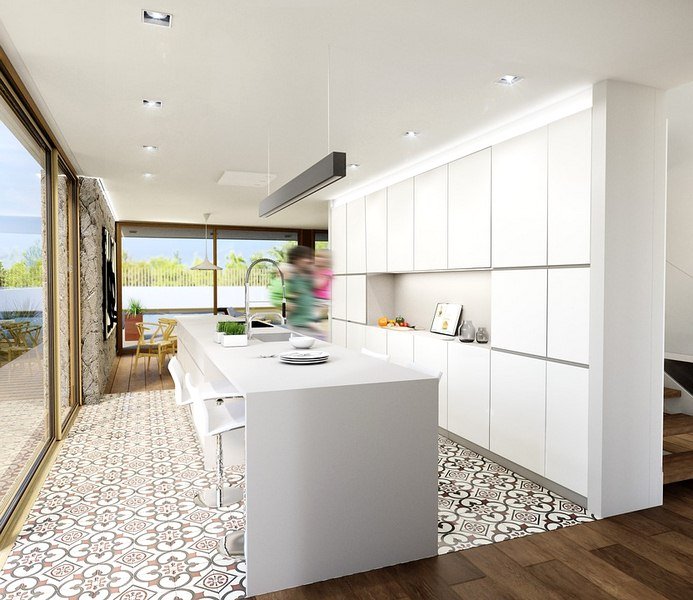
Concrete is porous, so it easily stains, although it is practically indestructible. It requires sealing to keep stains from seeping into the material. Plus, regular re-sealing allows this worktop material to be cleaned easily.
Pros
- Durable
- Heat resistant
- Customizable
- Can be made to look seamless with filler
- Recyclable
Cons
- High maintenance
- Sealing is required
- Easily stains
- Can absorb and retain moisture
- Hard on plates and glasses
Final Thoughts
When shopping for your new worktop surface, regardless if you want natural stone surfaces or quartz worktops, or machine-made ones, remember that there is no such thing as “the best worktop surface”. You need to consider your lifestyle, needs, and of course budget. Don’t forget to take into consideration the existing style and theme of your kitchen.
The pros and cons of top kitchen worktop materials only become advantages and disadvantages when overlaid against your lifestyle and needs.
Author Bio
Brandon loves the lighting – from studio to lawn lighting. He was an interior designer by profession but chose to practice a different job. At night, he loves watching the night sky as he believes this is the most wonderful light.

